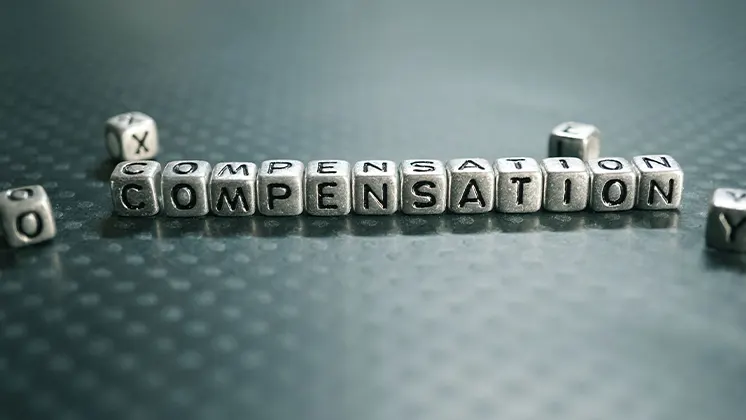Virginia Workers’ Compensation Rules Explained

Workers’ Compensation is built on rules that are lengthy, detailed, and sometimes hard to understand. But understand we must. That’s why we’ve made this guide. As an employee, you’ll want to read these rules for Virginia to help ensure a successful claim for your job-related injury. For legal advice on your specific situation, please reach out to our trusted workers’ comp attorney.
Virginia Workers’ Compensation Rules Overview
The rules of the VWCC are quite lengthy, but they include sections meant for employees, employers, and even the Commonwealth of Virginia. Each section has detailed subsections as well. The following are the sections most relevant to employees who are trying to get their workers’ comp benefits:
- Rule 1: Prehearing Procedures – These encompass the filing of your claim and how your employer may contest it. The subsections under this rule also tackle how disputed issues may be resolved without going through a hearing.
- Rule 2: Hearing Procedures – If there is a contested issue that’s not resolved in the prehearing phase, the Commission will call a hearing. This is the section you should read to learn what the hearing entails and how you and your attorney can prepare.
- Rule 3: Posthearing Procedures – After the hearing, you also have the opportunity to appeal the decision. This section provides the procedural rules for appealing.
- Rule 4: Filing Documents – This brief section has specific rules regarding your medical documents and any compensation agreement with your employer.
- Rule 9: Payment of Compensation – These are rules for your employer to follow when you are awarded workers’ comp. Read these mandates to know what rights you can assert to receive your money.
Next, we’ll explain each subsection of the rules we highlighted above. To read the actual rules and sub-rules in their full length, you can open this PDF file from the VWCC website.
Explaining the Rules and Sub-Rules of Virginia Workers’ Comp
Rule 1: Prehearing Procedures
Rule 1.1: Employee’s Original Claim for Benefits
This rule enumerates what information you should provide in your original claim for benefits. “Original claim” means it’s your initial filing for compensation, as opposed to follow-up filings and petitions you might make later on.
This subsection states that you must file your claim within the applicable statute of limitations or ‘deadline’ for filing. Generally, the statute of limitations for Virginia workers’ compensation claim filing is two years from the date of injury. Exceptions may extend or shorten this time frame, so it’s best to act as soon as you can.
Note that your “original claim of benefits” is the document you file with the Commission. This is separate from your written injury notice to your employer. You must notify your employer of your injury within 30 days, but better if you do it right after you get injured.
Rule 1.2: Employee’s Claim on the Ground of Change in Condition or Other Relief
If you already have a Virginia workers’ comp award but your physical condition or work status has deteriorated, you may file a “change of condition” claim for additional benefits. This rule says that your change of condition claim must clearly state the change in question and must be in writing. Aside from filing it with the Commission, you must send a copy to your employer.
This section also contains the “90-day rule”: Any additional benefits you receive will cover only up to 90 days prior to your filing of change in condition. In other words, you should file as soon as possible. If, for example, your medical status worsens today but you wait 95 days to file for change of condition, those extra five days will not be compensated.
Rule 1.3: Dismissal Upon Failure to File Supporting Evidence
Whether you’re making an initial workers’ comp claim or are filing for change in benefits, you must provide the Commission with supporting medical evidence within 90 days of filing. Once this deadline has passed, your employer may request the Commission to dismiss your claim.
In our decades of experience handling workers’ comp, we’ve seen how challenging it can be for injured workers to find supportive doctors. That’s why our network of physicians and specialists is valuable to our clients – they help our clients obtain strong supporting medical evidence in a timely manner. Talk to us at Slominski Law to see how this can work for you.
Rule 1.4: Employer’s Application for Hearing
Your employer or their insurance carrier may request the Commission to stop your workers’ comp benefits for a specific reason. This rule states how the employer or insurer should request the hearing and on what grounds.
Rule 1.5: Acceptance or Rejection of Claim or Application
This subsection outlines what the VWCC will do once they receive an initial workers’ comp claim, a change in condition claim, or an employer’s application for hearing. If any of these has been filed, the Commission will give the opposing party a chance to respond.
Rule 1.6: Review of Decision Accepting or Rejecting Claim or Application
If you disagree with the Commission’s decision on your original worker’s comp claim or change of benefits claim, you may request them to review that decision under the rules in this subsection. Likewise, your employer may also ask for a review if they disagree with the Commission’s finding.
Rule 1.7: Compromise Settlement; Lump Sum Payment
If you and your employer have negotiated a settlement to resolve the dispute, you must submit the proposed settlement to the Commission. This subsection outlines what the settlement proposal must contain. It also states that once the Commission has entered the settlement as an official order, it must be paid to you within 10 days.
Rule 1.8: Discovery
In this context, “discovery” is the process of finding facts and exchanging information with the opposing party as your claim is investigated. The discovery process for Virginia workers’ comp cases must obey the rules in this subsection. There are various discovery tools allowed including subpoenas and depositions, but you or your employer may ask for the Commission’s approval to use other means of inquiry.
Rule 1.9: Informal Dispute Resolution
Informal dispute resolution is a method of resolving conflicts without litigation or hearings. You or your employer may request the Commission to resolve your disputed case this way. The Commission may also require it when appropriate.
Rule 1.10: Willful Misconduct
To dispute your workers’ comp claim, your employer or their insurance company may allege that you engaged in willful misconduct, such as by disregarding safety rules in your workplace. If they’re using this defense, they must abide by the rules in this subsection.
Rule 1.11: Prehearing Statement
The Commission, through a deputy commissioner, may require you and your employer to submit a prehearing statement specifying the particulars of your claim. A workers’ compensation attorney can help you craft this statement.
Rule 1.12: Enforcement of the Act and Rules of the Commission; Sanctions
This rule gives the VWCC the power to enforce its rules and to impose sanctions on violators. Sanctions include rejection of pleading, exclusion of evidence, and dismissal of employee’s claim or employer’s application.
Rule 2: Hearing Procedures
Rule 2.1: Decision on the Record
An “on-the-record” hearing is one where the Commission decides based exclusively on entered evidence and written statements. There is no need for you or your employer to add new information or arguments.
A workers’ comp case will get an on-the-record decision if both parties agree on all the facts already entered but do not agree on how the law applies given these facts. If the Commission decides that your case will be decided on the record, this subsection provides applicable rules.
Rule 2.2: Evidentiary Hearing
In contrast to on-the-record hearing, an evidentiary hearing is one where the Commission takes evidence, hears witnesses, and makes inquiries. If the Commission calls an evidentiary hearing to decide your case, you or your attorney must present evidence in a convincing way. Throughout the hearing, all parties must obey the rules in this subsection.
Rule 2.3: Expedited Hearing
If you want to get a faster decision on your disputed workers’ comp case, you may request the Commission for an expedited hearing. Follow the rules in this subsection to make your request. If the Commission grants it, your hearing will be scheduled no more than 28 days from the date of granting.
Rule 3: Posthearing Procedures
Rule 3.1: Request for Review
If you disagree with the decision that came out of the hearing, you may ask the Commission to review it. This request is also known as an appeal. Your employer or their insurance company may also make an appeal if they disagree with the hearing outcome.
This subsection of rules tells you what your appeal should contain and how you should file it.
Rule 3.2: Written Statements
If you or your employer is appealing the decision, the Commission will provide a schedule for each of you to file written statements detailing your side of the case.
Rule 3.3: Additional Testimony
Neither you nor your employer can present additional evidence in a case that’s being appealed. You can only add evidence if you’ve filed a petition to reopen the record and the full Commission approves your petition.
Rule 3.4: Oral Argument
If you wish to present an oral argument (made by yourself or your lawyer), you must request this in your appeal. This subsection tells you what happens if you or your employer has asked to present an oral argument.
If no party has asked to present an oral argument, the appeal will be decided on the record.
Rule 4: Filing Documents
Rule 4.1: Agreements
Let’s say you and your employer have come to an agreement on your workers’ compensation. This agreement will not be official and enforceable unless the Commission approves it. You must file any agreements for the Commission’s approval.
Rule 4.2: Medical Reports
This rule instructs all parties on when and how to include medical records in the case. Any time you or your attorney obtains a medical record from a doctor, you must share copies with the other party, even if it’s unfavorable to you.
This subsection also states that medical providers must provide requested records at no cost. However, if they are requested to provide a narrative report that needs significant professional preparation, they are entitled to a reasonable fee.
Rule 9: Payment of Compensation
Rule 9.1: Waiting Period
Under the Virginia Workers’ Compensation Act, there is a seven-day waiting period before you can start receiving your wage-loss benefits. According to this sub-rule of the Commission, that seven-day period will start on the very date of your accident IF you were not paid wages for that day.
Rule 9.2: Direct Payment
Once the Commission officially awards you your workers’ comp, your employer or their insurer must pay you directly, whether or not you’re represented by a lawyer. If the award includes an attorney fee, your employer or their insurer must pay that fee directly to your lawyer.
As you can see, there are a significant number of rules affecting a workers’ comp case, and your claim can quickly become complicated. Don’t hesitate to speak with a workers’ compensation attorney if you’re uncertain about these rules. It’s better to have experienced guidance because any misstep in the case could cost you your fair compensation.
Contact Jaleh K. Slominski – Virginia Workers’ Comp Lawyer
Virginian workers trust Attorney Jaleh K. Slominski for their workers’ compensation claims. With over 20 years of experience in the complex field of Virginia workers’ comp, she can help you navigate a tricky case and advocate for what you’re entitled to. Her legal service has helped numerous workers turn their “nightmare” cases into favorable outcomes.
Whether you’re filing an initial claim, requesting a review, or appealing your case, Attorney Slominski is ready to listen. Get your consultation by calling (434) 384-9400 in (Lynchburg) or (540) 554-3762 in (Roanoke).





